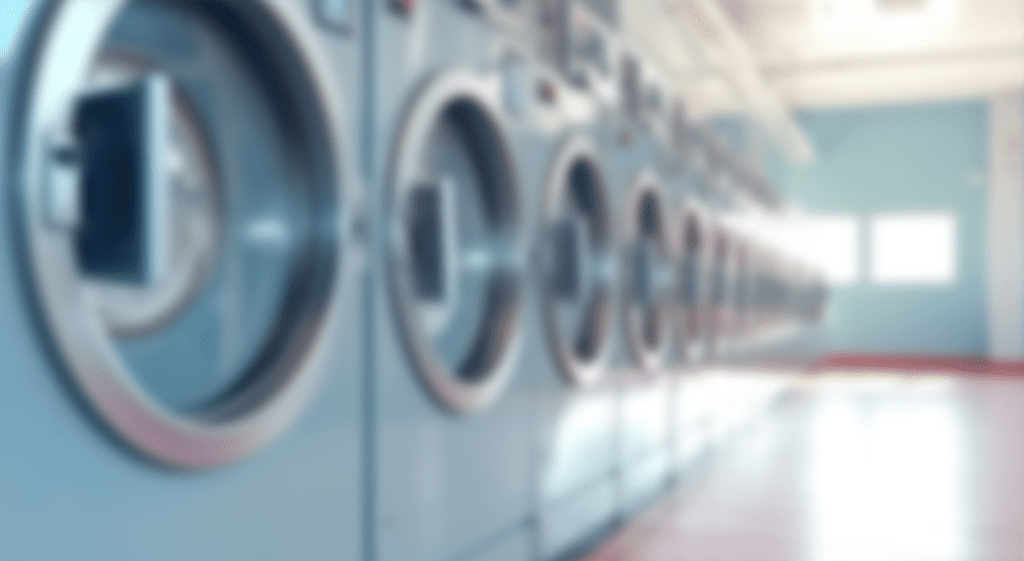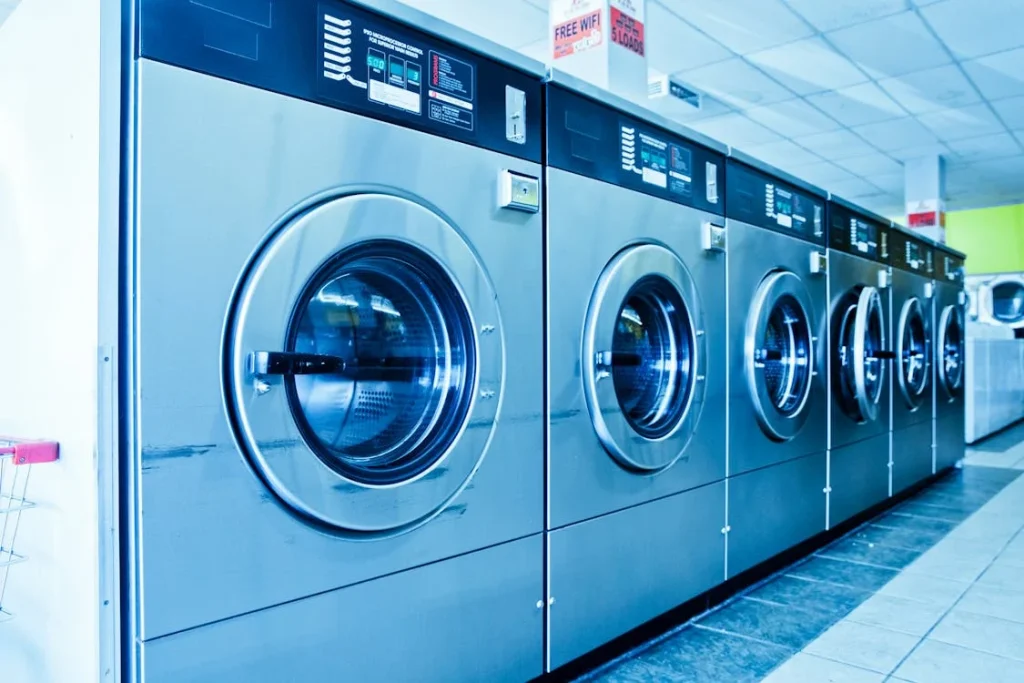Industrial laundry refers to large-scale cleaning operations that service a variety of industries, including healthcare, hospitality, manufacturing, and more. Unlike commercial or residential laundry, which deals with smaller loads and simpler processes, industrial laundry requires advanced equipment, specialized knowledge, and a deep understanding of the unique needs of various sectors. Whether it’s scrubbing down bed linens in a hotel, sanitizing hospital gowns, or cleaning uniforms for factory workers, industrial laundry plays a crucial role in maintaining cleanliness, hygiene, and operational efficiency.
Table of Contents
- 1. Introduction to Industrial Laundry
- 2. The Industrial Laundry Process
- 3. Types of Industrial Laundry Services
- 4. Benefits of Industrial Laundry Services
- 5. Key Equipment Used in Industrial Laundry
- 6. Choosing an Industrial Laundry Service Provider
- 7. Conclusion
- 8. FAQs
1. Introduction to Industrial Laundry
Before we dive into the intricate details of industrial laundry, let’s set the stage. Industrial laundry involves the mass cleaning and maintenance of textiles used in sectors that require high-volume and high-quality laundering. This isn’t your average laundry load—it’s about processing hundreds or even thousands of items at once. But why is it so essential? Because industries like healthcare, hospitality, and manufacturing rely on cleanliness for everything from customer satisfaction to compliance with health and safety regulations.
1.1. Definition and Scope
So, what exactly is industrial laundry? It refers to the professional cleaning services that cater to large institutions, such as hospitals, hotels, restaurants, factories, and even certain schools or gyms. It encompasses everything from basic washing and drying to ironing, folding, and packaging. Industrial laundry also tends to focus on bulk items like sheets, towels, work uniforms, and linens, which are handled in a way that guarantees high standards of hygiene and efficiency.
1.2. Key Differences from Commercial and Residential Laundry
At first glance, industrial laundry might seem similar to commercial or residential laundry. However, the scale and complexity are where the differences lie. Commercial laundry services, while they also cater to businesses, typically involve smaller quantities of laundry compared to industrial settings, which handle massive volumes. Residential laundry, on the other hand, deals with personal clothing and smaller loads, often with less specialized equipment. Industrial laundry focuses on industrial-grade textiles, requires higher capacity machinery, and must meet stricter regulations, especially in sectors like healthcare.
2. The Industrial Laundry Process
The industrial laundry process can be broken down into several essential stages, each requiring specialized equipment and knowledge. It’s not just about throwing a load in the washer and hitting start. Let’s walk through it.
2.1. Collection and Sorting
First comes the collection. Industrial laundry companies often have dedicated systems to pick up linens, uniforms, and other items. These items are then sorted based on type, fabric, soil level, and cleaning requirements. For instance, hospital gowns will be handled separately from hotel linens due to the different hygiene protocols involved. Sorting is a crucial step to ensure that the laundry process is efficient and that no items are damaged during cleaning.
2.2. Washing and Cleaning
Once sorted, the laundry is sent to commercial washing machines that are much larger than typical home washers. These machines use various detergents and cleaning agents tailored to the type of fabric and the degree of dirt or contamination. In industrial settings, washing machines may also use higher temperatures or specialized cycles to meet strict hygiene standards, especially in industries like healthcare where sanitation is paramount.
2.3. Drying and Finishing
After washing, the items go through an industrial dryer, which uses high heat and powerful tumbling to dry them quickly. Some linens or uniforms may also go through specialized finishing processes like pressing or steaming to remove wrinkles. In hotels, this step ensures that linens are crisp and perfectly folded, ready for guest use.
2.4. Packaging and Delivery
The final stage is packaging and delivery. Once the laundry is cleaned, dried, and finished, it’s sorted, folded, and packaged in a way that makes it easy for the client to distribute it. This might mean organizing hospital linens into sets or packing hotel sheets in bundles for easy room assignment. Delivery trucks then transport the cleaned goods to their respective locations.
3. Types of Industrial Laundry Services
There’s no one-size-fits-all when it comes to industrial laundry. Different industries have different needs, and as a result, industrial laundry services are highly specialized.
3.1. Healthcare Laundry
In healthcare, laundry must meet stringent regulations to prevent cross-contamination and ensure patient safety. This includes washing medical scrubs, bed linens, surgical gowns, and towels that come in contact with bodily fluids. Health-related laundering also involves disinfecting textiles to avoid the spread of diseases.
3.2. Hotel and Hospitality Laundry
Hotels require large quantities of linens, towels, bedspreads, and uniforms to be cleaned regularly. Since hospitality is a high-touch industry, linens need to be both pristine and sanitized. Hospitality laundry services also cater to a quick turnaround, so linens are available for use as soon as possible.
3.3. Uniform and Workwear Laundry
Uniforms for businesses like restaurants, factories, and delivery services are washed through industrial laundry processes. These uniforms often get heavily soiled and must be cleaned with special detergents and equipment to ensure they’re thoroughly sanitized and in good condition for reuse.
3.4. Industrial and Manufacturing Laundry
In manufacturing, workwear, protective clothing, and other textiles get dirty from heavy industrial work. Industrial laundry services help maintain hygiene standards and ensure that the workwear is not only clean but also free of chemicals or materials that might pose a health hazard.
4. Benefits of Industrial Laundry Services
Choosing industrial laundry offers several key benefits for businesses across various industries.
4.1. Efficiency and Cost-Effectiveness
Industrial laundry services are designed for high efficiency. They can clean and process large volumes of textiles quickly, which is critical for businesses that need constant access to clean linens or uniforms. With streamlined processes, businesses can save on labor costs and reduce the time spent handling laundry internally.
4.2. Health and Safety Standards
In industries like healthcare, cleanliness is non-negotiable. Industrial laundry services are well-equipped to meet hygiene standards and regulations that ensure the safety of both employees and customers. For instance, medical linens are laundered to remove pathogens, which helps prevent hospital-acquired infections (HAIs).
4.3. Environmental Sustainability
Many industrial laundry companies are adopting sustainable practices, like using eco-friendly detergents, energy-efficient machines, and recycling water. By doing so, they help businesses reduce their environmental footprint.
5. Key Equipment Used in Industrial Laundry
To perform large-scale laundry, industrial laundries use heavy-duty equipment designed for efficiency and durability.
5.1. Commercial Washing Machines
These commercial washing machines are built to handle large loads of laundry. They often feature advanced settings for different fabrics and soil levels. These washers ensure that all items are cleaned thoroughly without damaging the fabric.
5.2. Industrial Dryers and Presses
Industrial dryers are capable of handling huge volumes of laundry. High-powered dryers reduce drying time, allowing businesses to get their linens or uniforms back quickly. Presses and steamers also help give the items a polished finish.
5.3. Ironing and Folding Equipment
For industries like hospitality, ironers and folders help ensure that linens are crisp and ready for use. Automated folding machines also speed up the process, ensuring uniformity and consistency.
6. Choosing an Industrial Laundry Service Provider
When selecting a provider, it’s essential to consider several factors that could impact the quality and efficiency of the service.
6.1. Factors to Consider
Look for a provider that has experience in your industry. For instance, if you’re in healthcare, they should understand the specific sanitization requirements. Other factors include delivery speed, eco-friendliness, and customer service.
6.2. Questions to Ask
- What is the typical turnaround time?
- Do they offer eco-friendly cleaning options?
- Are they compliant with industry-specific regulations?
7. Conclusion
Industrial laundry plays a critical role in ensuring that industries maintain high standards of cleanliness and hygiene. Whether it’s healthcare, hospitality, or manufacturing, the efficiency, safety, and environmental sustainability of these services make them indispensable. By understanding the process and benefits of industrial laundry, businesses can make informed decisions when choosing a service provider. Get in touch with us to learn more on industrial laundry.
8. FAQs
What types of textiles can be cleaned in industrial laundry?
Industrial laundry services clean a wide range of textiles, including linens, uniforms, towels, surgical gowns, and more.
How do industrial laundry companies ensure quality control?
They implement strict protocols for sorting, washing, drying, and finishing to ensure that all textiles meet high hygiene and quality standards.
Is industrial laundry environmentally friendly?
Many industrial laundry companies use eco-friendly detergents, energy-efficient machines, and water-recycling processes to minimize their environmental impact.
How often should industrial laundry services be used?
This depends on the type of industry. For example, healthcare facilities may need daily laundry services, while hotels may require weekly services.
Are industrial laundry services expensive?
Costs vary based on the volume of laundry, the type of service required, and the provider. However, the efficiency and time saved often make it cost-effective for businesses.
Here are some other articles that we think might interest you:
Environmental Impact of Industrial Laundry


